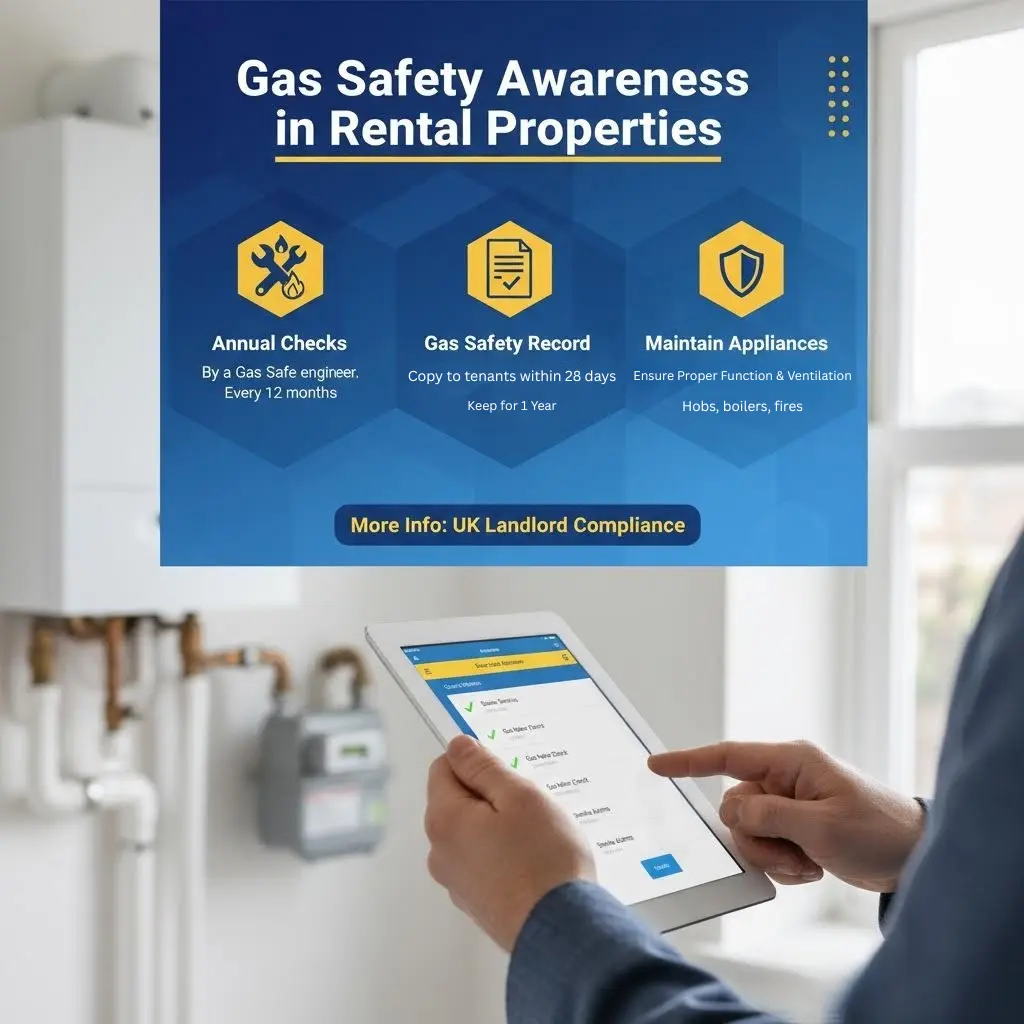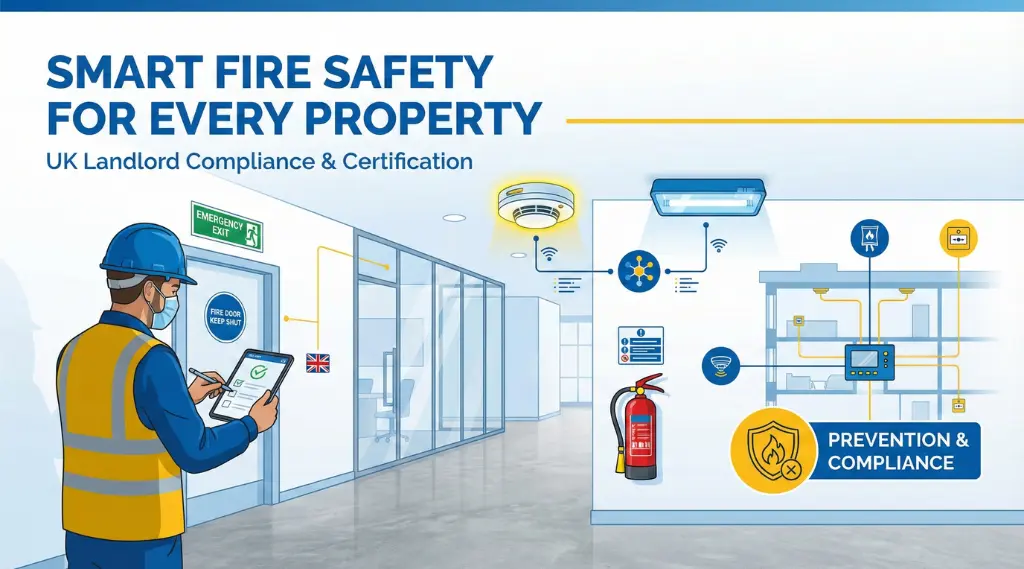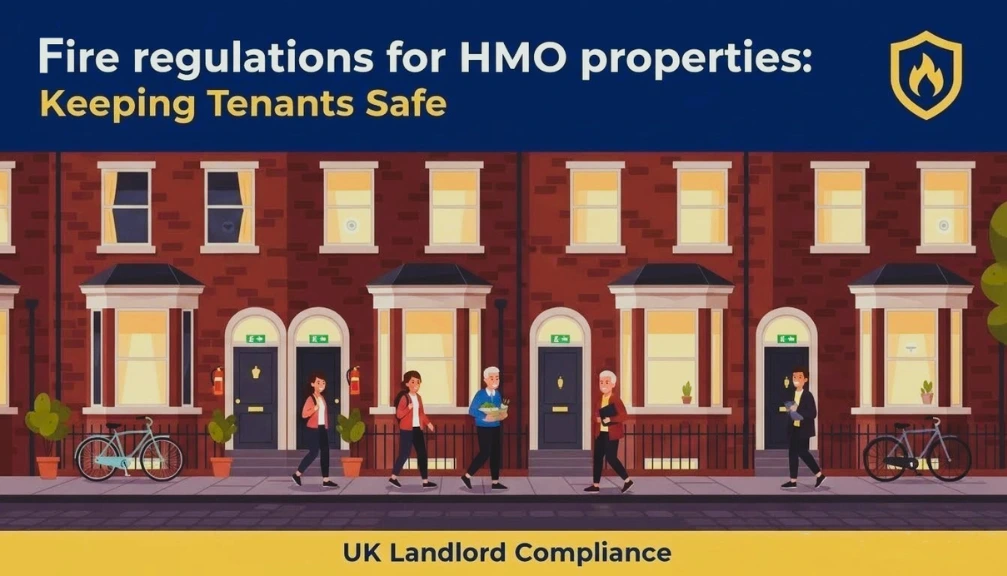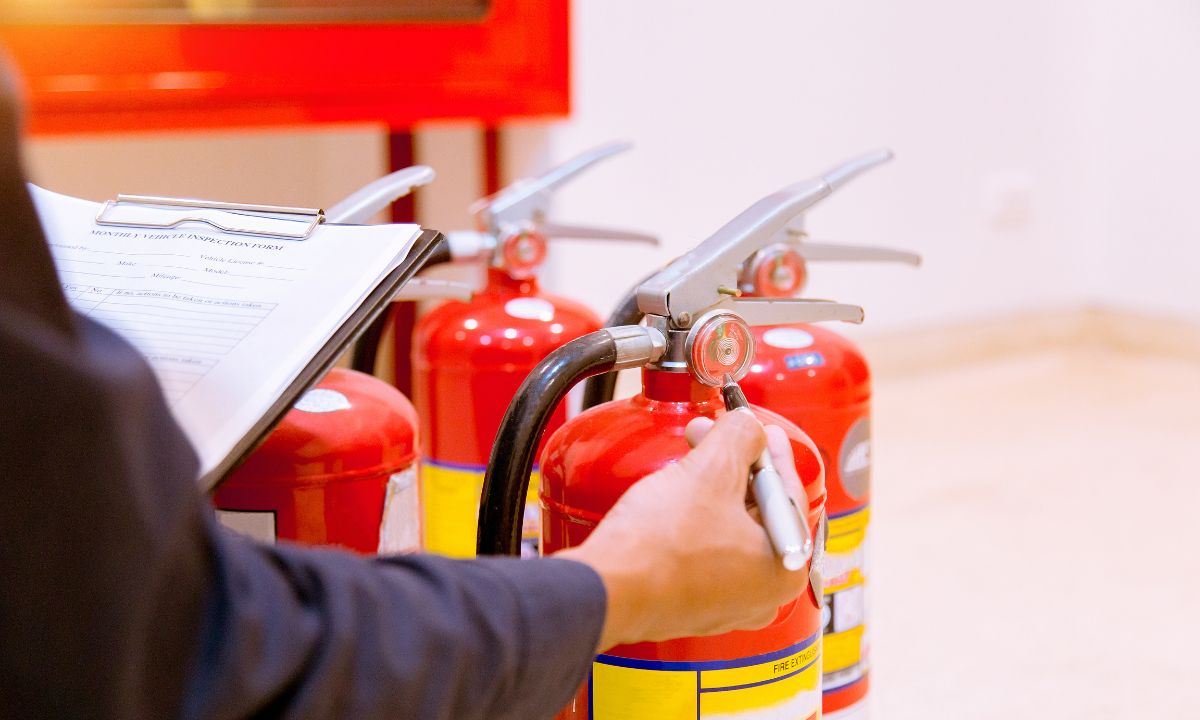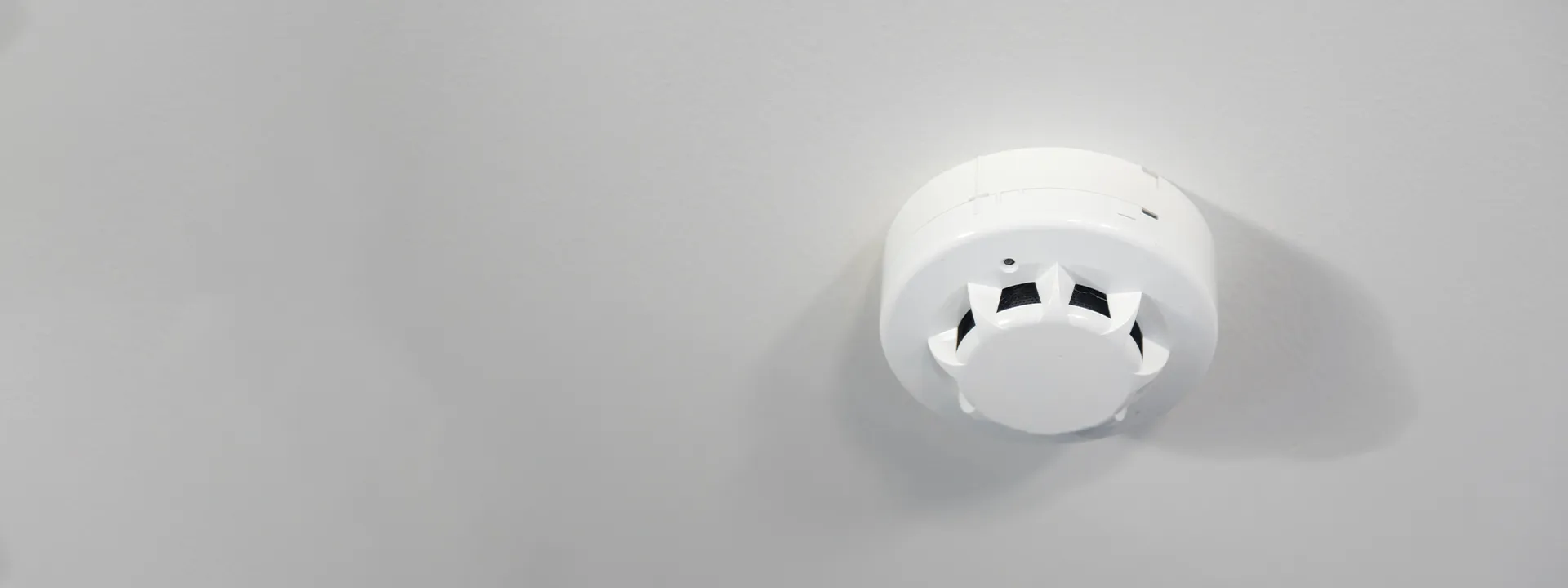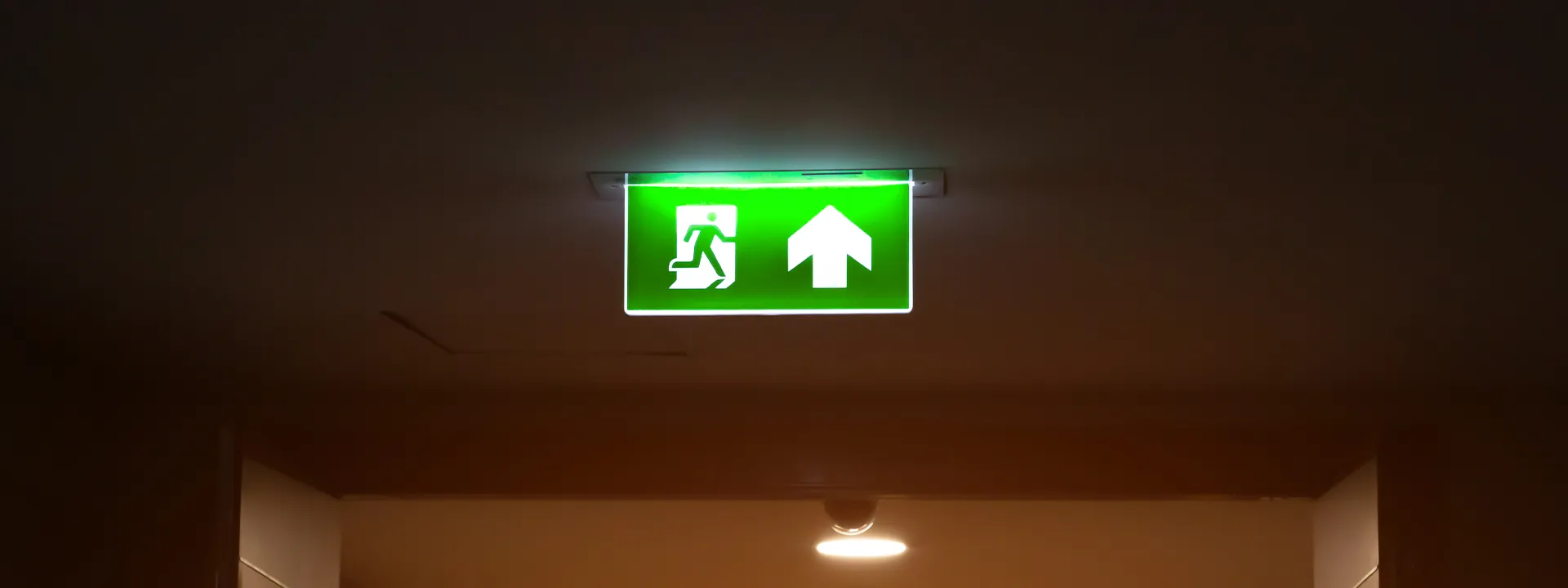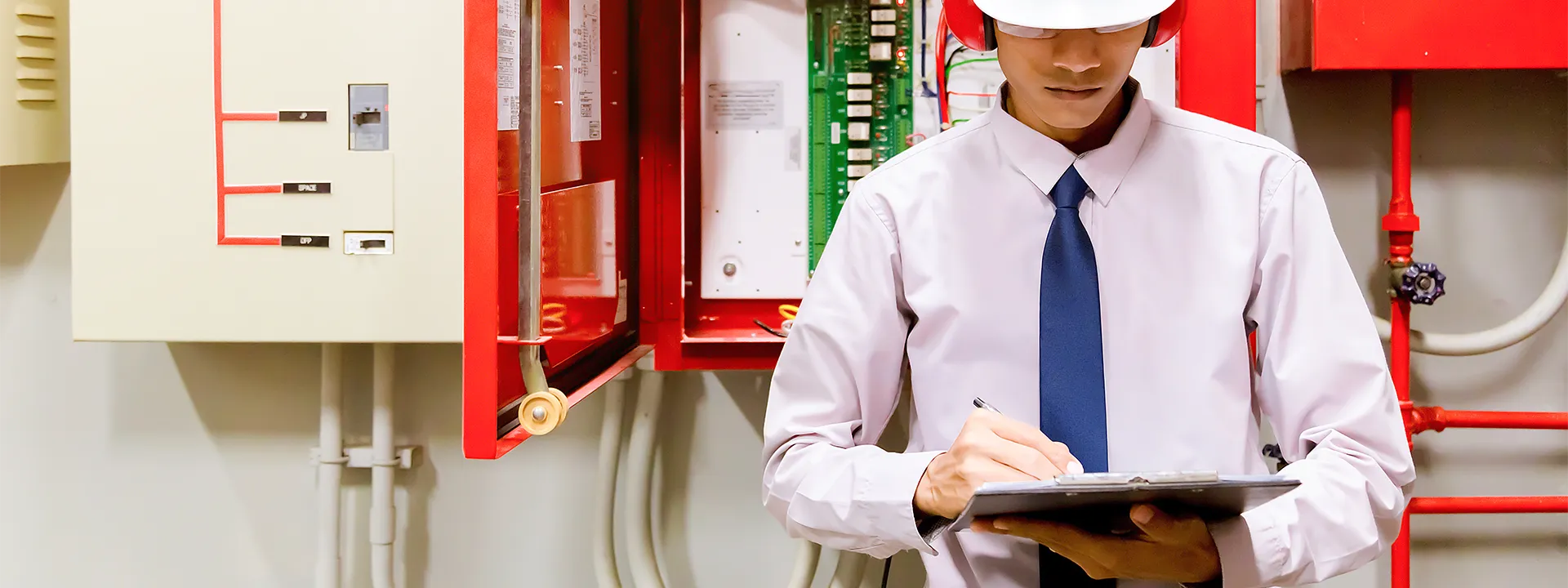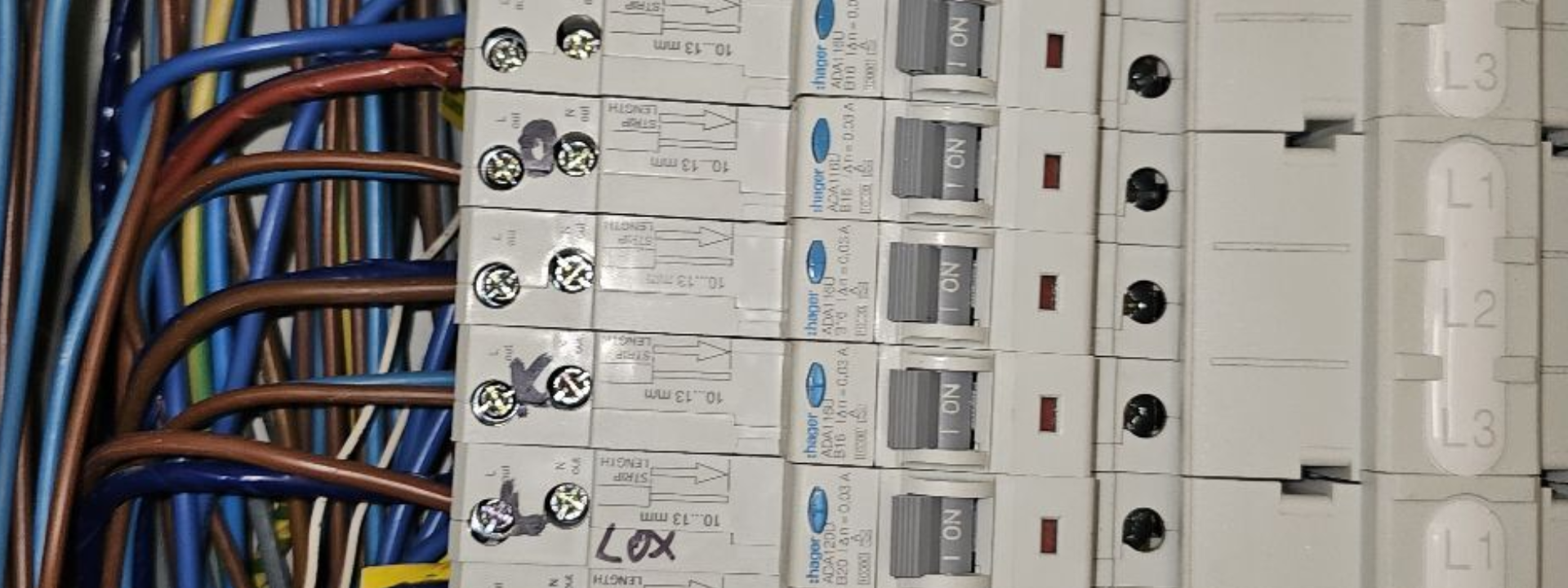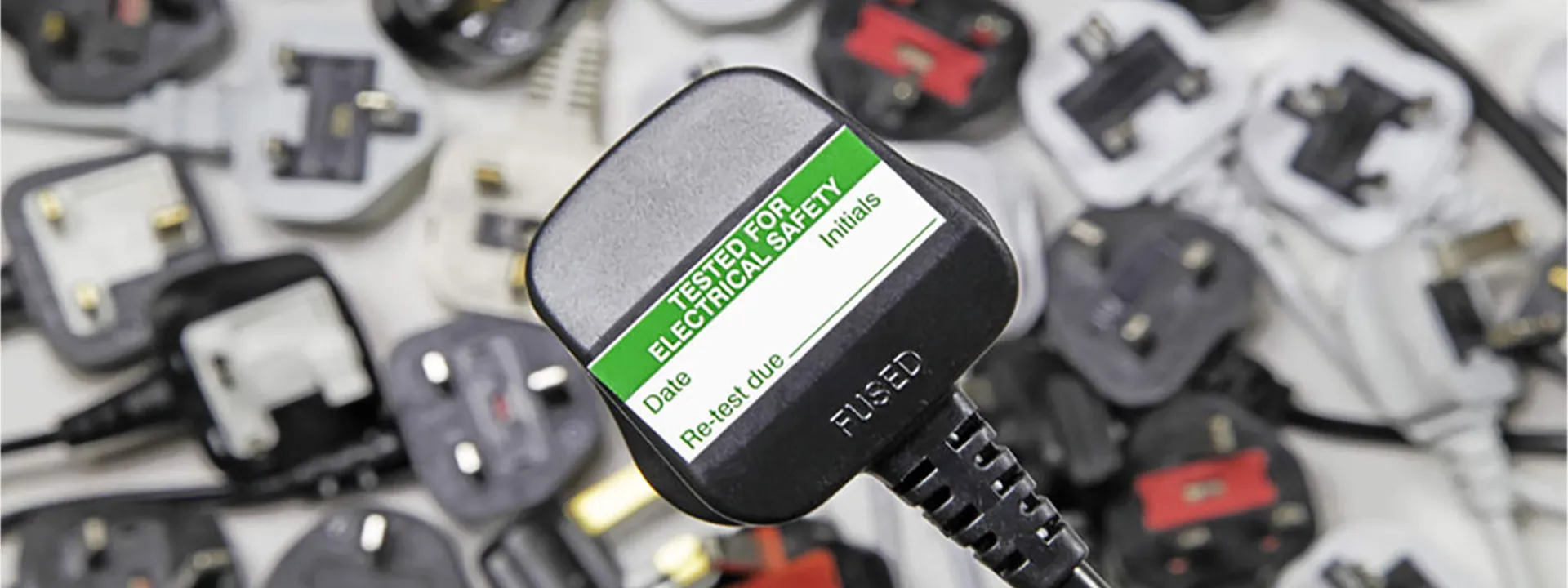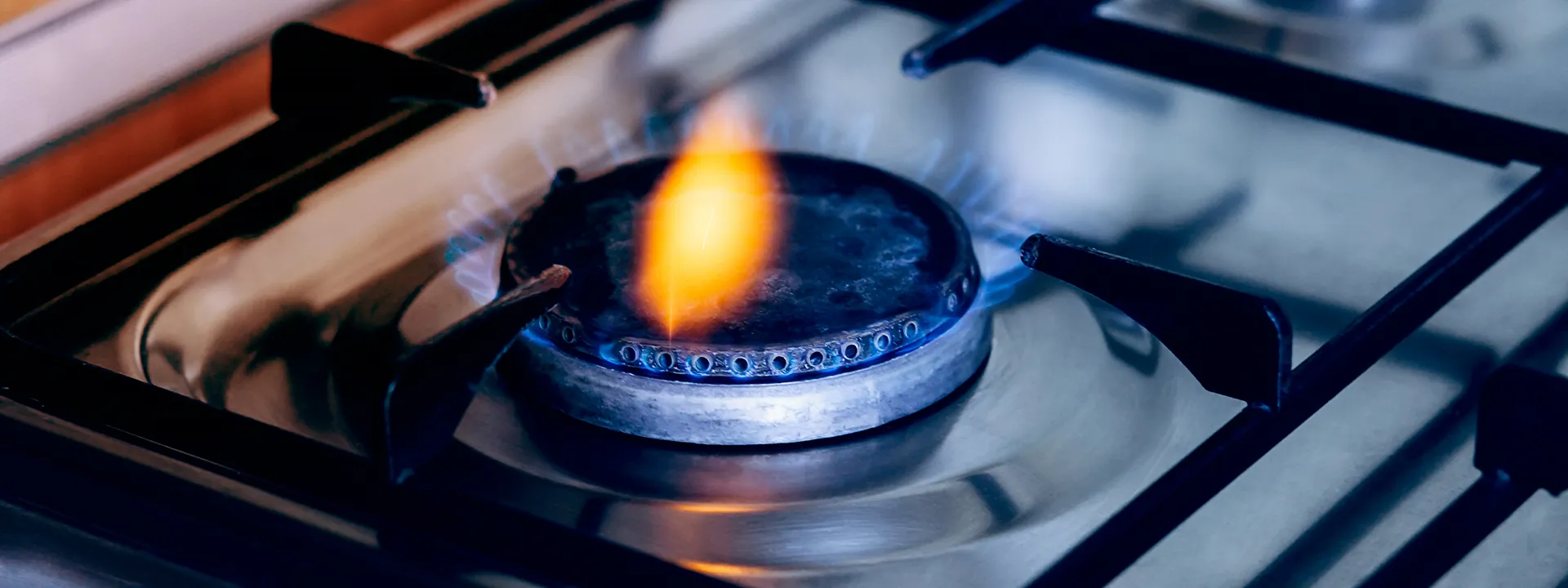Do you know what can happen if a landlord ignores gas safety checks? The honest answer is that tenants can get hurt, and your property can explode if you skip gas checks. Gas safety checks for landlords are not rules or paperwork, it’s a legal duty.
Let me tell you a real story. In Kent, a landlord named Dawn Holliday ignores gas safety checks. Tenants face a boiler that bangs, no hot water, and a cooker that can’t work. Inspectors step in. The court sets a schedule, gives a 26-week suspended sentence, and imposes a tagged curfew, ensuring all appliances become safe. This shows clearly that landlord gas safety checks protect tenants and avoid serious risks.
That’s why, in this blog, we explain step by step, explain all the rules, and make gas safety easy to understand. Let’s go!
What Are the Legal Gas Safety Requirements for Landlords?
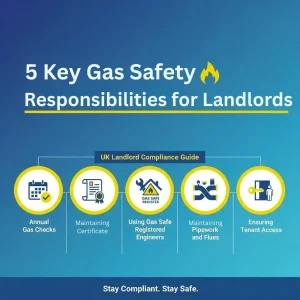
Let’s talk about gas safety requirements for landlords. Yes, it’s not the most exciting topic, but keeping tenants safe is super important. Gas can be dangerous, so landlords need to follow strict rules in the UK. Let’s start with the basics.
Understanding Gas Safety Regulations 1998 for Rental Properties
The Gas Safety (Installation and Use) Regulations 1998 set gas safety regulations for landlords who rent out properties with gas appliances. Here are the major gas safety regulations:
![]() Gas Appliances and Installations
Gas Appliances and Installations
All gas appliances, fittings, and pipework in the property remain safe, properly installed, and compliant with Gas Safety (Installation and Use) Regulations 1998. Appliances include boilers, cookers, heaters, and water heaters.
![]() Flues and Ventilation
Flues and Ventilation
Properties provide adequate ventilation and flue systems to allow safe removal of combustion gases![]() Maintenance and Safety
Maintenance and Safety
Appliances, pipework, and flues stay in good repair and safe condition at all times.![]() Gas Leaks and Defects
Gas Leaks and Defects
Any gas leak, carbon monoxide hazard, or unsafe appliance in the property receives immediate attention.![]() Safety Records
Safety Records
A property holds a current Gas Safety Record (CP12 certificate) for each appliance before being rented.![]() Legal Compliance
Legal Compliance
Properties cannot get rented without compliance with the Gas Safety (Installation and Use) Regulations 1998. Authorities can issue penalty notices, prohibition notices, or prosecute if the property remains unsafe.![]() Gas Safe Registration
Gas Safe Registration
All work on gas appliances, pipework, and installations in the property occurs through gas safe registered engineers.
Landlord Responsibilities Under the Gas Safety Installation and Use Regulations
Here are the main legal obligations for landlords under the 1998 Regulations. Let’s go step by step:
1. Annual Gas Safety Check![]() It must be carried out every 12 months by a Gas Safe registered engineer.
It must be carried out every 12 months by a Gas Safe registered engineer.![]() Covers all gas appliances, pipework, and flues.
Covers all gas appliances, pipework, and flues.
2. Gas Safety Record (CP12 Certificate)![]() Must be kept for at least 2 years.
Must be kept for at least 2 years.![]() A copy must be provided to tenants within 28 days of the check or before new tenants move in.
A copy must be provided to tenants within 28 days of the check or before new tenants move in.![]() The record must include:
The record must include:![]() Appliance details
Appliance details![]() Location
Location![]() Safety check results
Safety check results![]() Any defects and remedial action
Any defects and remedial action
3. Repairs and Maintenance
Any unsafe appliance or installation must be repaired or taken out of service immediately.![]() Landlords must ensure all appliances are maintained in a safe condition.
Landlords must ensure all appliances are maintained in a safe condition.![]() Contents of the safety record: The check must include certain examinations (as per regulation 26(9) of GS(I&U)R) like checking for gas tightness, ventilation, operating pressure, etc.
Contents of the safety record: The check must include certain examinations (as per regulation 26(9) of GS(I&U)R) like checking for gas tightness, ventilation, operating pressure, etc.
4. Tenant Safety![]() Inform tenants how to use appliances safely.
Inform tenants how to use appliances safely.![]() Advise tenants not to use faulty appliances.
Advise tenants not to use faulty appliances.![]() Warn tenants to report gas leaks or defects immediately.
Warn tenants to report gas leaks or defects immediately.
5. Access for Checks and Repairs![]() Tenants must allow access for safety inspections and repairs.
Tenants must allow access for safety inspections and repairs.![]() Landlords provide reasonable notice for visits (usually 24 hours).
Landlords provide reasonable notice for visits (usually 24 hours).
6. Notification to Authorities![]() Certain serious incidents (e.g., a gas leak causing injury/death) must be reported to the Health & Safety Executive (HSE).
Certain serious incidents (e.g., a gas leak causing injury/death) must be reported to the Health & Safety Executive (HSE).
7. Gas Appliances Included![]() Boilers, fires, water heaters, cookers, hobs, heaters, flues, and pipework.
Boilers, fires, water heaters, cookers, hobs, heaters, flues, and pipework.
8. Enforcement & Penalties![]() Unlimited fines for breaching regulations.
Unlimited fines for breaching regulations.![]() Up to 2 years in prison if negligence leads to death.
Up to 2 years in prison if negligence leads to death.![]() Civil liability for tenants injured due to non-compliance.
Civil liability for tenants injured due to non-compliance.
9. Use of Registered Engineers![]() Only a Gas Safe registered engineer can install, repair, or service gas appliances.
Only a Gas Safe registered engineer can install, repair, or service gas appliances.
10. Record Accuracy![]() Landlords must ensure all checks and records are accurate and reflect the true safety status.
Landlords must ensure all checks and records are accurate and reflect the true safety status.
Penalties and Consequences for Non-Compliance with Gas Safety Laws
Gas safety for landlords is all about following the rules. Yes, if landlords skip these rules, they get into serious trouble. They face:![]() Criminal fines and jail: HSE can take action. Fines reach thousands of pounds, up to £6,000, and serious cases lead to prison.
Criminal fines and jail: HSE can take action. Fines reach thousands of pounds, up to £6,000, and serious cases lead to prison.![]() Insurance problems: No valid Gas Safety Certificate (CP12) can cancel insurance. Any accident becomes the landlord’s responsibility.
Insurance problems: No valid Gas Safety Certificate (CP12) can cancel insurance. Any accident becomes the landlord’s responsibility.![]() Tenant claims: Unsafe appliances or injuries can cause tenants to claim compensation.
Tenant claims: Unsafe appliances or injuries can cause tenants to claim compensation.![]() Eviction issues: Without current gas checks, landlords cannot regain the property legally.
Eviction issues: Without current gas checks, landlords cannot regain the property legally.![]() Local authority fines: Councils can issue penalties, sometimes tens of thousands of pounds.
Local authority fines: Councils can issue penalties, sometimes tens of thousands of pounds.![]() Reputation damage: Legal trouble and unsafe properties make it hard to attract tenants.
Reputation damage: Legal trouble and unsafe properties make it hard to attract tenants.
How Often Do Landlords Need to Conduct Gas Safety Checks?
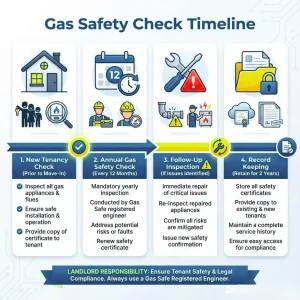
Alright, let’s talk gas safety. If you’re a landlord in the UK, keeping your tenants safe is really important. One big thing is gas appliances. Well, let’s go through everything about the landlord gas check and how to keep it legit in the UK.
Annual Gas Safety Check Requirements Explained
An annual gas safety check gives a full look at every gas appliance and every part of the system. Here is the full list of what the check covers:
![]() Boilers get a full inspection for leaks, pressure issues, flame issues, and safe operation.
Boilers get a full inspection for leaks, pressure issues, flame issues, and safe operation.![]() Gas cookers and ovens get a check for steady ignition, safe burning, correct heat flow, and secure fittings.
Gas cookers and ovens get a check for steady ignition, safe burning, correct heat flow, and secure fittings.![]() Gas fires and heaters get a check for safe flames, clear airflow, and secure parts.
Gas fires and heaters get a check for safe flames, clear airflow, and secure parts.![]() All gas pipes and joints get a full scan for leaks or weak spots.
All gas pipes and joints get a full scan for leaks or weak spots.![]() Flues get a check to confirm clear passage of fumes and safe release of gases.
Flues get a check to confirm clear passage of fumes and safe release of gases.![]() Ventilation points get a check to confirm fresh airflow and safe exit of fumes.
Ventilation points get a check to confirm fresh airflow and safe exit of fumes.![]() Carbon monoxide risks get checked through testing of key areas around appliances.
Carbon monoxide risks get checked through testing of key areas around appliances.
After the inspection:![]() The engineer creates a full record with dates, appliance details, results, and notes for repair.
The engineer creates a full record with dates, appliance details, results, and notes for repair.![]() The record stays with the landlord for two years for full compliance.
The record stays with the landlord for two years for full compliance.![]() The tenant receives a copy before moving in or right at move-in time.
The tenant receives a copy before moving in or right at move-in time.![]() If any appliance needs repair, the landlord arranges the fix right away, and then the engineer returns for a safety recheck.
If any appliance needs repair, the landlord arranges the fix right away, and then the engineer returns for a safety recheck.
Why this check matters:![]() It keeps every gas appliance safe for daily use.
It keeps every gas appliance safe for daily use.![]() It lowers the risk of leaks, fires, and carbon monoxide.
It lowers the risk of leaks, fires, and carbon monoxide.![]() It keeps the property in line with UK gas safety rules.
It keeps the property in line with UK gas safety rules.![]() It gives tenants trust and confidence in the home.
It gives tenants trust and confidence in the home.
When to Schedule Follow-Up Inspections for Faulty Equipment
Alright, let’s talk about what happens when an engineer finds a fault in a gas appliance. This part is important because one small issue can create a safety risk. So here is how follow-up checks work in a simple, clear way:
![]() As soon as the engineer points out a fault, the landlord arranges a repair without delay.
As soon as the engineer points out a fault, the landlord arranges a repair without delay.![]() The engineer looks at the situation and gives a clear view of the safety level in the property, so tenants stay safe during the fix.
The engineer looks at the situation and gives a clear view of the safety level in the property, so tenants stay safe during the fix.![]() After the repair, a follow-up inspection comes next to confirm the appliance runs in a safe and steady way.
After the repair, a follow-up inspection comes next to confirm the appliance runs in a safe and steady way.![]() This check looks at the repaired appliance and everything connected to it, like pipe joints, vents, and flues.
This check looks at the repaired appliance and everything connected to it, like pipe joints, vents, and flues.![]() The engineer tests the flame, the ignition, the airflow, and the gas flow to make sure everything lines up with safety rules.
The engineer tests the flame, the ignition, the airflow, and the gas flow to make sure everything lines up with safety rules.![]() A fresh entry goes on the record with clear notes from the follow-up.
A fresh entry goes on the record with clear notes from the follow-up.![]() If the engineer spots another issue, the landlord arranges another repair and another check until everything reaches a safe level.
If the engineer spots another issue, the landlord arranges another repair and another check until everything reaches a safe level.
Timing Requirements for New Tenancies and Gas Safety Records
When a new tenant gets ready to move in, clear timing for gas safety checks keeps everything smooth and safe. Here is everything landlords need to follow:
![]() A full gas safety check takes place before any new tenant enters the property.
A full gas safety check takes place before any new tenant enters the property.![]() The landlord gives the tenant a fresh record on or before the first day of the tenancy.
The landlord gives the tenant a fresh record on or before the first day of the tenancy.![]() If any gas appliance gets a repair or replacement between tenants, the property gets another safety check before the new tenant arrives.
If any gas appliance gets a repair or replacement between tenants, the property gets another safety check before the new tenant arrives.![]() The landlord keeps every safety record for two years to show a clear history of checks, repairs, and follow-ups.
The landlord keeps every safety record for two years to show a clear history of checks, repairs, and follow-ups.![]() If the property stays occupied with the same tenant, a new gas safety check still takes place every 12 months, and the tenant receives the updated record as soon as the check finishes.
If the property stays occupied with the same tenant, a new gas safety check still takes place every 12 months, and the tenant receives the updated record as soon as the check finishes.![]() Every check covers boilers, gas cookers, gas fires, flues, pipework, and ventilation areas, and each check creates a new entry on the landlord gas safety record.
Every check covers boilers, gas cookers, gas fires, flues, pipework, and ventilation areas, and each check creates a new entry on the landlord gas safety record.
After the work, you will get a new certificate, and the certificate is valid for a year by a gas safe professional. Complete the gas safety check so tenants know their own safety is looked after. From electrical safety to gas fitting, you have everything you need to know about keeping the home safe, deciding if the action taken was reasonable, and making sure the check being completed is right.
Who Can Legally Perform Gas Safety Inspections for Landlords?
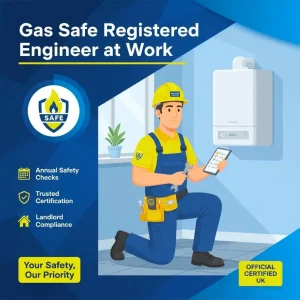
That’s the question every landlord is asking. Many landlords look for easy, straight info during gas safety inspections. In the UK, a Gas Safe registered engineer holds the legal right to work on any gas appliance in a rented home.
Finding and Verifying Gas Safe Registered Engineers
If you follow the rules, finding a good engineer is very simple. The Gas Safe Register lists all legal engineers in the UK. You can check their details fast and make sure the person you hire is fully qualified.
Steps to verify an engineer:![]() Go to the Gas Safe Register website.
Go to the Gas Safe Register website.![]() Enter the licence number.
Enter the licence number.![]() Check the engineer’s name.
Check the engineer’s name.![]() Check the business name.
Check the business name.![]() Look at approved appliance types.
Look at approved appliance types.![]() Save a screenshot for your records.
Save a screenshot for your records.
Extra tips to make it smooth:![]() Look for clear insurance details.
Look for clear insurance details.![]() Pick someone who communicates clearly.
Pick someone who communicates clearly.![]() Choose engineers who provide fast reports.
Choose engineers who provide fast reports.![]() Check local reviews if possible.
Check local reviews if possible.
What Qualifications Should Your Gas Safety Inspector Have?
A good inspector keeps the whole process simple and safe. It is not just about checking a boiler. They make sure every gas appliance in your property works properly and meets UK rules. Doing a proper gas check for landlords keeps tenants safe and your property legal.
![]() ACS training for gas work: This proves they possess the proper skills.
ACS training for gas work: This proves they possess the proper skills.![]() Current reassessment keeps their knowledge up to date.
Current reassessment keeps their knowledge up to date.![]() Training for all the appliances in your property: boilers, cookers, fires, anything with gas.
Training for all the appliances in your property: boilers, cookers, fires, anything with gas.![]() Solid knowledge of ventilation and space rules: safety goes beyond the appliance.
Solid knowledge of ventilation and space rules: safety goes beyond the appliance.![]() Public liability insurance covers accidents and protects you.
Public liability insurance covers accidents and protects you.![]() Reports written in plain English: easy to read and keep in your files.
Reports written in plain English: easy to read and keep in your files.
A few extra signs that feel good:![]() Shows the ID card right away
Shows the ID card right away![]() Talks in simple terms
Talks in simple terms![]() Sends the results on the same day
Sends the results on the same day![]() Leaves the place neat
Leaves the place neat![]() Gives a clear note for the next check date
Gives a clear note for the next check date
A strong inspector keeps stress low and safety high, which is what every landlord wants.
What Gas Appliances Must Be Checked During Safety Inspections?
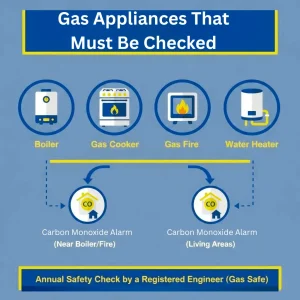
Let’s talk about gas safety checks for landlords. If you have a rental property, you need to make sure all gas appliances are safe. This keeps your tenants safe and keeps you on the right side of the law.
Boiler and Heating System Safety Requirements
Boilers and heating systems need careful attention in rental homes. A landlord boiler check keeps tenants safe and makes sure the property meets the law.
Here’s what to do:
![]() Have a Gas Safe engineer check the boiler and heating system every year.
Have a Gas Safe engineer check the boiler and heating system every year.![]() Ensure new boilers meet building regulations. The engineer gives a Compliance Certificate.
Ensure new boilers meet building regulations. The engineer gives a Compliance Certificate.![]() Position flues at least 300 mm away from windows or doors and 2,000 mm below Velux windows. This keeps dangerous gases out of the house.
Position flues at least 300 mm away from windows or doors and 2,000 mm below Velux windows. This keeps dangerous gases out of the house.![]() New boilers meet minimum efficiency rules, and the heating flow stays around 55 °C.
New boilers meet minimum efficiency rules, and the heating flow stays around 55 °C.![]() Keep all parts clean, supported, and free from damage or corrosion.
Keep all parts clean, supported, and free from damage or corrosion.![]() Check ventilation to ensure the system receives enough fresh air to work safely.
Check ventilation to ensure the system receives enough fresh air to work safely.![]() For electric boilers, follow BS 7671 Wiring Regulations to prevent fire risks.
For electric boilers, follow BS 7671 Wiring Regulations to prevent fire risks.![]() Fix any problems straight away and keep a record of all checks and repairs.
Fix any problems straight away and keep a record of all checks and repairs.
Doing these steps keeps the boiler safe, protects tenants from fire, and follows UK law.
Gas Cookers, Fires, and Other Appliance Inspections
For landlords, making sure gas appliances are safe is essential. Cookers, ovens, and gas fires need attention to protect tenants and meet legal requirements. Here’s what landlords do as part of gas safety checks for landlords:
![]() Always have a Gas Safe engineer install or service appliances.
Always have a Gas Safe engineer install or service appliances.![]() Make sure burners and flames are working properly.
Make sure burners and flames are working properly.![]() Check hoses and connections for leaks or damage.
Check hoses and connections for leaks or damage.![]() Ensure rooms have enough ventilation for appliances to work safely.
Ensure rooms have enough ventilation for appliances to work safely.![]() Inspect seals, pilot lights, and automatic shut-off devices.
Inspect seals, pilot lights, and automatic shut-off devices.![]() Look over gas fires for soot, cracks, or anything that looks unsafe.
Look over gas fires for soot, cracks, or anything that looks unsafe.![]() Keep a clear record of every inspection for each appliance.
Keep a clear record of every inspection for each appliance.
Following these steps keeps your kitchens and living spaces safe. It also helps you meet your legal responsibilities as a landlord.
Carbon Monoxide Detector Requirements and Best Practices
For landlords, protecting tenants from carbon monoxide is a legal responsibility. Installing and checking detectors is part of CO gas safety. Here’s what landlords do:
![]() Fit a carbon monoxide detector in every room with a gas or solid fuel appliance.
Fit a carbon monoxide detector in every room with a gas or solid fuel appliance.![]() Check detectors regularly to make sure they work.
Check detectors regularly to make sure they work.![]() Replace batteries or units that are not working immediately.
Replace batteries or units that are not working immediately.![]() Keep detectors away from vents or high-humidity areas for accurate readings.
Keep detectors away from vents or high-humidity areas for accurate readings.![]() Record all checks and maintenance to prove compliance.
Record all checks and maintenance to prove compliance.![]() Inform tenants how the alarm works and what to do if it sounds.
Inform tenants how the alarm works and what to do if it sounds.![]() Ensure all gas appliances have proper ventilation to reduce CO risk.
Ensure all gas appliances have proper ventilation to reduce CO risk.
You know what happened with Paul Coyle in North Belfast? He skipped getting a gas appliance checked by a Gas Safe engineer. Local council stepped in, he ignored their notice, and the case went to court. He got a £3,000 fine, which shows skipping gas checks can land you in real trouble. Following these steps keeps tenants safe and helps landlords meet UK safety rules.
The Cost of Gas Appliance Safety and Inspections
The table below shows the costs for gas appliance safety inspections and related services in the UK. Costs vary based on property size, location, and type of service. Take a look at that:
Type of Inspection / Service
Cost (GBP)
Factors
Gas Safety Certificate (CP12) – standard (1 appliance)
£60–£120
Depends on location, number of appliances, and provider
Per Additional Appliance (for CP12)
£10–£40
For each extra gas appliance beyond the base inspected ones
Re Inspection (if initial check failed)
£40–£70
Charged when a follow-up safety check is required after repairs
Emergency / Same-Day Gas Safety Inspection
£80–£150
Premium for urgent or out-of-hours inspections
Boiler Service Alone
£80–£140 (average ~£100)
Varies by engineer’s experience, boiler type, and location
Combined Boiler Service + Gas Safety Certificate
£80–£150 (average ~£120)
Bundling service + CP12 is often cheaper than separate
CP12 for Large / Multiple Properties (Bulk)
May get discounts
Reduced rates for bulk bookings
Inspection for Gas Meter + Appliances
£50–£80 (for up to ~3–4 appliances)
Based on specific inspection companies’ rates
Type of Inspection / Service
Cost (GBP)
Factors
Gas Safety Certificate (CP12) – standard (1 appliance)
£60–£120
Depends on location, number of appliances, and provider
Per Additional Appliance (for CP12)
£10–£40
For each extra gas appliance beyond the base inspected ones
Re Inspection (if initial check failed)
£40–£70
Charged when a follow-up safety check is required after repairs
Emergency / Same-Day Gas Safety Inspection
£80–£150
Premium for urgent or out-of-hours inspections
Boiler Service Alone
£80–£140 (average ~£100)
Varies by engineer’s experience, boiler type, and location
Combined Boiler Service + Gas Safety Certificate
£80–£150 (average ~£120)
Bundling service + CP12 is often cheaper than separate
CP12 for Large / Multiple Properties (Bulk)
May get discounts
Reduced rates for bulk bookings
Inspection for Gas Meter + Appliances
£50–£80 (for up to ~3–4 appliances)
Based on specific inspection companies’ rates
How Can Landlords Ensure Tenant Access for Gas Safety Checks?
Keeping your tenants safe and following the law is really important. Gas safety checks are not just paperwork, they can save lives. But sometimes tenants do not let you in easily. Here’s how landlords can handle it smoothly.
Legal Right of Entry for Gas Safety Inspections
Landlords have a clear legal right to enter a property to carry out gas safety inspections. This is not optional. It is a requirement under UK law to ensure gas appliances are safe. Before visiting, landlords must give tenants at least 24 hours notice. A short, clear message works best. Let them know it is a safety check and it is required by law. Pick a reasonable time for the inspection. Try to arrange it when tenants are likely to be home. This makes the process smoother for everyone. Only a gas safe registered engineer can carry out the check. Make sure the person visiting meets this requirement. It keeps everything legal and safe.
Finally, keep records of each inspection. Note the date, time, and who carried out the check. This documentation proves you followed the law and helps if any issues arise later.
Documenting Attempts to Gain Access for Safety Checks
Sometimes tenants do not let landlords in straight away for gas safety checks. Keeping a proper record is important to stay legal and protect everyone. Here’s what landlords do:
![]() Note the date and time of every attempt to arrange the inspection.
Note the date and time of every attempt to arrange the inspection.![]() Keep copies of emails, letters, texts, or calls sent to tenants.
Keep copies of emails, letters, texts, or calls sent to tenants.![]() Take a photo or keep a copy of any notice left at the property.
Take a photo or keep a copy of any notice left at the property.![]() Record the content of communication clearly so it shows what was requested.
Record the content of communication clearly so it shows what was requested.![]() Maintain a polite and professional tone in every message.
Maintain a polite and professional tone in every message.![]() If tenants continue to refuse access, use the records to support legal steps through the proper channels.
If tenants continue to refuse access, use the records to support legal steps through the proper channels.
If you are a tenant, explaining that a safety check is happening can make everything feel clear. A safety check is a legal requirement, and carrying out maintenance and safety checks keeps appliances and flues in order. You can use a gas safe registered gas operative who uniquely identifies the gas operative who carried the work.
What Must Be Included in a Landlord Gas Safety Record (CP12)?
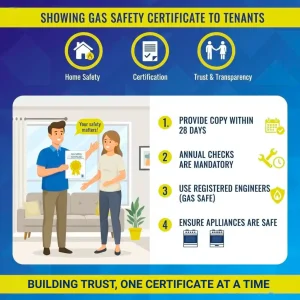
You won’t believe what happened with Mr. Mehmet Sevim in Torquay. He used someone who wasn’t Gas Safe to do a check and then made a fake CP12. HSE picked it up, took him to court, and he got a suspended jail term, unpaid work, and over £5,330 in costs. It shows fake gas papers bring serious trouble. As a landlord, having a landlord gas safety certificate CP12 is not only a legal requirement but a way to show tenants that their safety comes first.
Essential Components of a Valid Gas Safety Certificate
Every part of the certificate is important. Think of it like a full health check for your property’s gas appliances. Missing something is like skipping a spot in a safety check. You want everything clear so tenants feel safe and you stay on the right side of the law. Key components include:
![]() Checked appliances: List all gas appliances, including boilers, cookers, and heaters.
Checked appliances: List all gas appliances, including boilers, cookers, and heaters.![]() Condition of each appliance: Safe, unsafe, or requires attention.
Condition of each appliance: Safe, unsafe, or requires attention.![]() Defects and resolutions: Explain any issues and what has been done to fix them.
Defects and resolutions: Explain any issues and what has been done to fix them.![]() Gas engineer details: Name, signature, and Gas Safe registration.
Gas engineer details: Name, signature, and Gas Safe registration.![]() Inspection date and next check: Clear record of when the inspection took place and when the next one is due.
Inspection date and next check: Clear record of when the inspection took place and when the next one is due.![]() Landlord responsibilities: Any instructions or actions needed from the landlord to maintain safety.
Landlord responsibilities: Any instructions or actions needed from the landlord to maintain safety.
Here’s what must appear on the certificate:![]() Gas engineer details: Name, signature, and Gas Safe registration number.
Gas engineer details: Name, signature, and Gas Safe registration number.![]() Property address: Where the gas appliances and pipework are located.
Property address: Where the gas appliances and pipework are located.![]() List of appliances: Every gas appliance, boiler, heater, or cooker checked.
List of appliances: Every gas appliance, boiler, heater, or cooker checked.![]() Flues and ventilation: Details of flues and gas vents inspected for safety.
Flues and ventilation: Details of flues and gas vents inspected for safety.![]() Safety checks and results: Notes on the condition of appliances and any issues found.
Safety checks and results: Notes on the condition of appliances and any issues found.![]() Corrective actions: Steps taken to fix problems or recommendations for follow-up.
Corrective actions: Steps taken to fix problems or recommendations for follow-up.![]() Dates: Inspection date and the date for the next check.
Dates: Inspection date and the date for the next check.
How Long to Keep Gas Safety Records and Documentation
That’s the main part, keeping your records safe and accessible. It proves your property is safe and shows you follow the rules if anyone asks.
Here’s the rule:![]() Keep every certificate for at least two years.
Keep every certificate for at least two years.![]() Provide a copy to new tenants before they move in.
Provide a copy to new tenants before they move in.![]() Keep repair and maintenance records linked to each certificate.
Keep repair and maintenance records linked to each certificate.![]() Store copies safely, either digitally or physically.
Store copies safely, either digitally or physically.
Digital vs. Physical Gas Safety Certificates: What’s Acceptable?
Both digital and physical certificates work in the UK, provided they are complete and readable. Many landlords find digital copies easier to handle, but physical copies are still perfectly valid. Here’s a simple comparison:
Feature
Digital Certificate
Physical Certificate
Legally valid
Yes, if complete and legible
Yes
Easy to store
Backed up, no space needed
Needs secure storage
Easy to share
Send by email instantly
Make copies or scan
Risk of loss
Low if backed up
Higher if misplaced or damaged
Accessibility
Access from anywhere
Only where stored
Proof for tenants
Can print or send digitally
Direct handover possible
Feature
Digital Certificate
Physical Certificate
Legally valid
Yes, if complete and legible
Yes
Easy to store
Backed up, no space needed
Needs secure storage
Easy to share
Send by email instantly
Make copies or scan
Risk of loss
Low if backed up
Higher if misplaced or damaged
Accessibility
Access from anywhere
Only where stored
Proof for tenants
Can print or send digitally
Direct handover possible
Digital records save space and time, but some tenants prefer having a physical copy. For extra security, you can keep both.
What Are the Common Gas Safety Issues Found During Landlord Inspections?
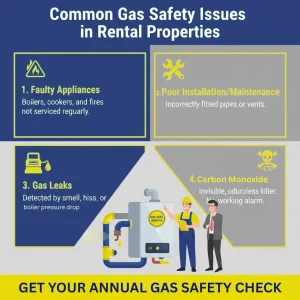
Let’s be honest, gas safety can feel a bit scary for landlords, but keeping on top of it doesn’t have to be complicated. Gas safety checks for landlords help spot problems before they turn into real headaches.
Identifying Dangerous Gas Installation Problems
Some gas installation issues are easy to miss if you’re not looking closely. Here’s what can pop up:
![]() Cracked, rusty, or loose pipes.
Cracked, rusty, or loose pipes.![]() Appliances are installed without the right ventilation.
Appliances are installed without the right ventilation.![]() Dodgy DIY fixes that don’t meet safety standards.
Dodgy DIY fixes that don’t meet safety standards.![]() Burn marks or soot around burners.
Burn marks or soot around burners.![]() Anything that looks a bit ‘off’ with the setup.
Anything that looks a bit ‘off’ with the setup.
Even if you’re not a gas engineer, knowing what to watch out for helps you catch issues quickly.
Understanding Gas Appliance Warning Signs and Urgent Safety Concerns
Gas appliances give few clues when something is wrong. Spotting them early keeps everyone safe.
Here’s what to look for:
![]() Smells like rotten eggs, this can mean a gas leak.
Smells like rotten eggs, this can mean a gas leak.![]() Flames that are yellow or flicker instead of staying blue.
Flames that are yellow or flicker instead of staying blue.![]() Appliances that don’t light or make strange noises.
Appliances that don’t light or make strange noises.![]() Pilot lights that keep going out.
Pilot lights that keep going out.![]() Gas safety warning labels that are missing, damaged, or hard to read.
Gas safety warning labels that are missing, damaged, or hard to read.
Always check gas safety warning labels on appliances. If anything looks wrong, call a qualified engineer straight away.
Managing Tenant-Owned Gas Appliances in Rental Properties
Tenant appliances can be a bit tricky sometimes. A simple way to stay safe is to ask tenants to show proof that their appliances get checked regularly. It helps to remind them not to move or mess with gas heaters, cookers, or other appliances. Clear rules make life easier for everyone. Take a quick look at gas safety warning labels to make sure everything is up to standard. And tell tenants to let you know straight away if anything seems wrong. Doing this keeps everyone safe and avoids any nasty surprises.
Final Thoughts
Alright, we’re at the finish line. Gas safety sounds heavy at first, but once you see the steps, it feels simple. You book the check, you get the certificate, and you keep the place safe for everyone. That’s the whole point.
For landlords who want an easy way to sort their gas safety paperwork. All Landlords Certificate gives a clear and quick gas safety certificate service. You book the visit, get your certificate, and keep everything on track. Gas safety stays easy when each step stays clear. Tenants stay safe, and you stay stress-free.
